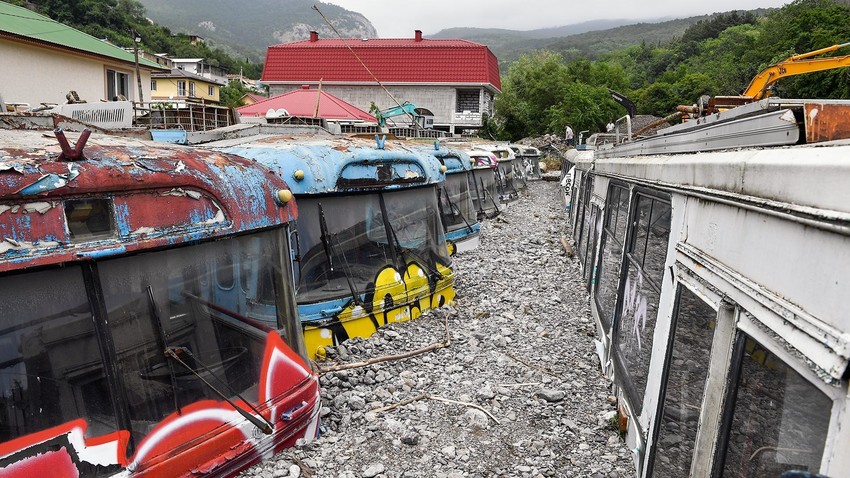
Yalta was hit by a massive cyclone on June 18. Rain lasted for six straight hours, unleashing a monthly level of water onto the resort town. Vodopadnaya River overflowed its banks and began to flood city streets.
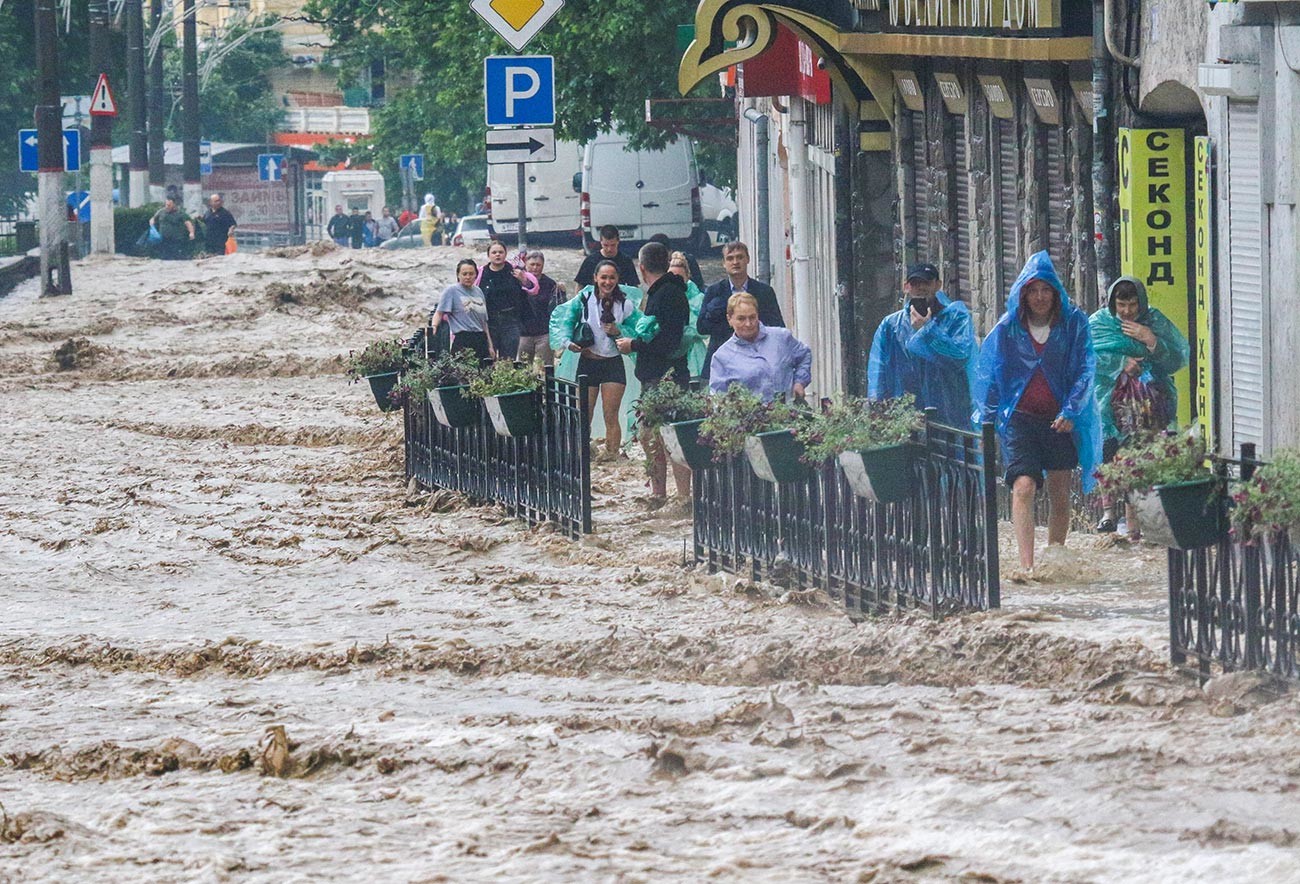
A total of 135 mm of precipitation accumulated in just several days - something that hadn’t happened in 100 years, according to Yanina Pavlenko, the head of the local administration.
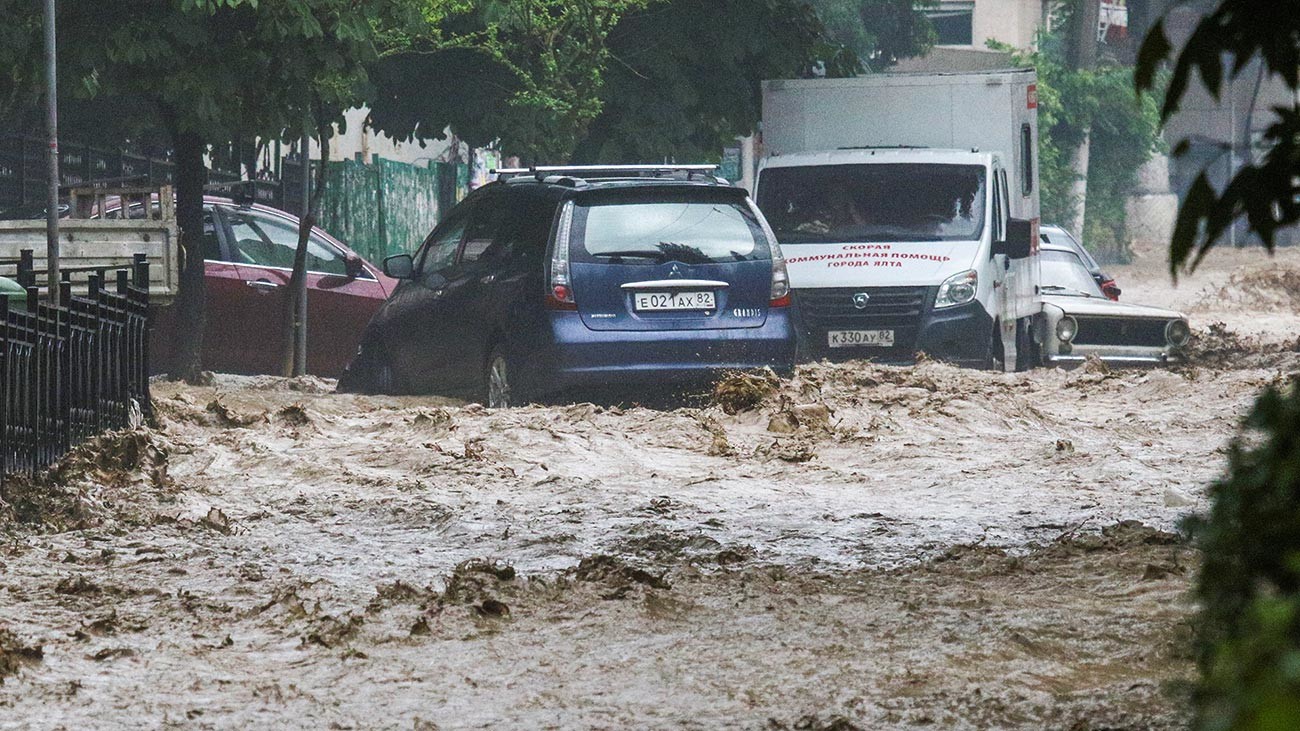
More than 100 streets were flooded, together with underground crossings. Most of the city lost power as a result. Some buildings were submerged by the waters of the Vodopadnaya, now standing covered in mud and rocks. People were evacuated from the area a day after the disaster.
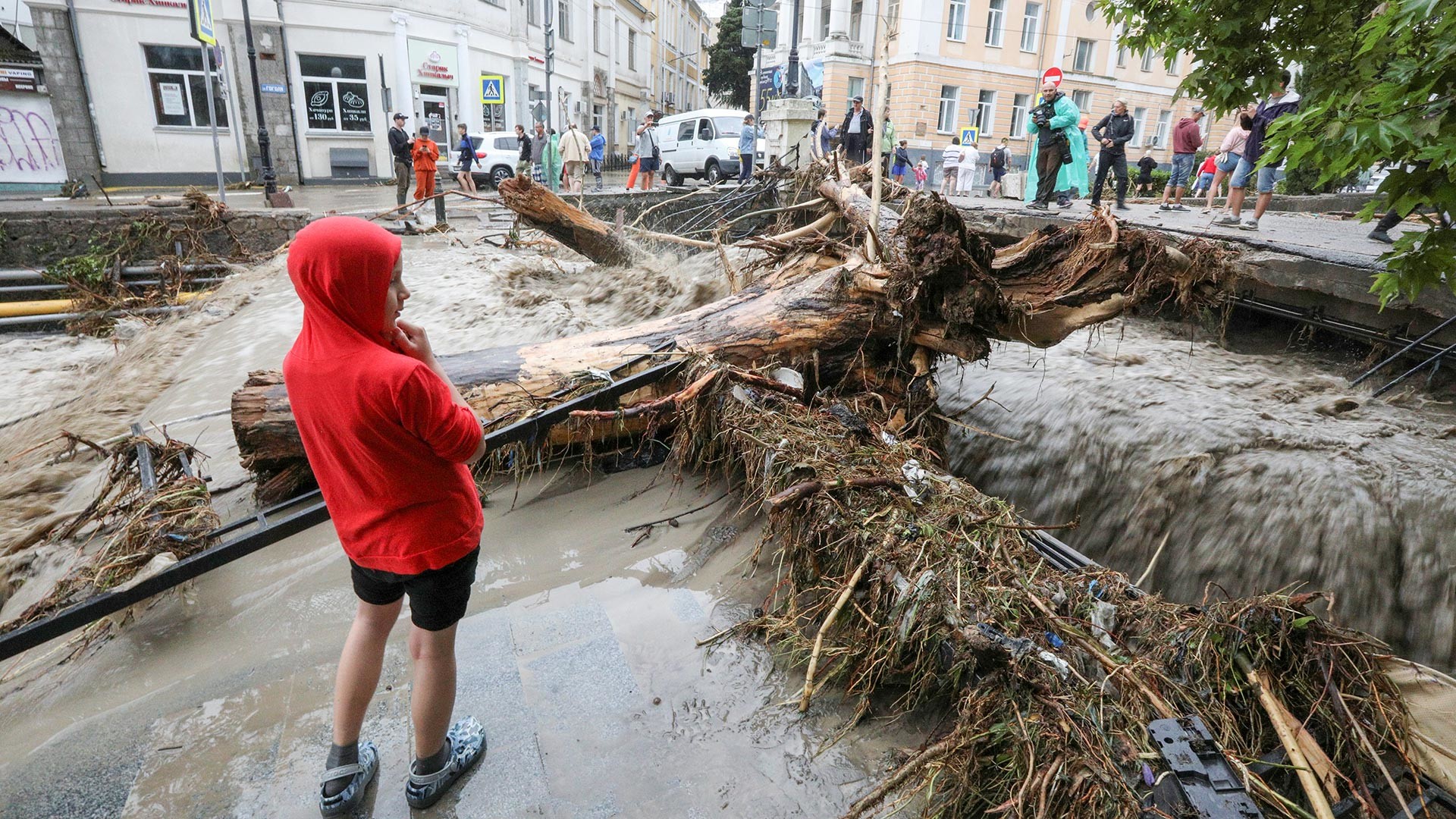
Sergey Aksenov, the head of Crimea, had to survey the damage using a boat. A state of emergency has been declared across the peninsula. Aksenov referred to the scale of damage as “catastrophic”.
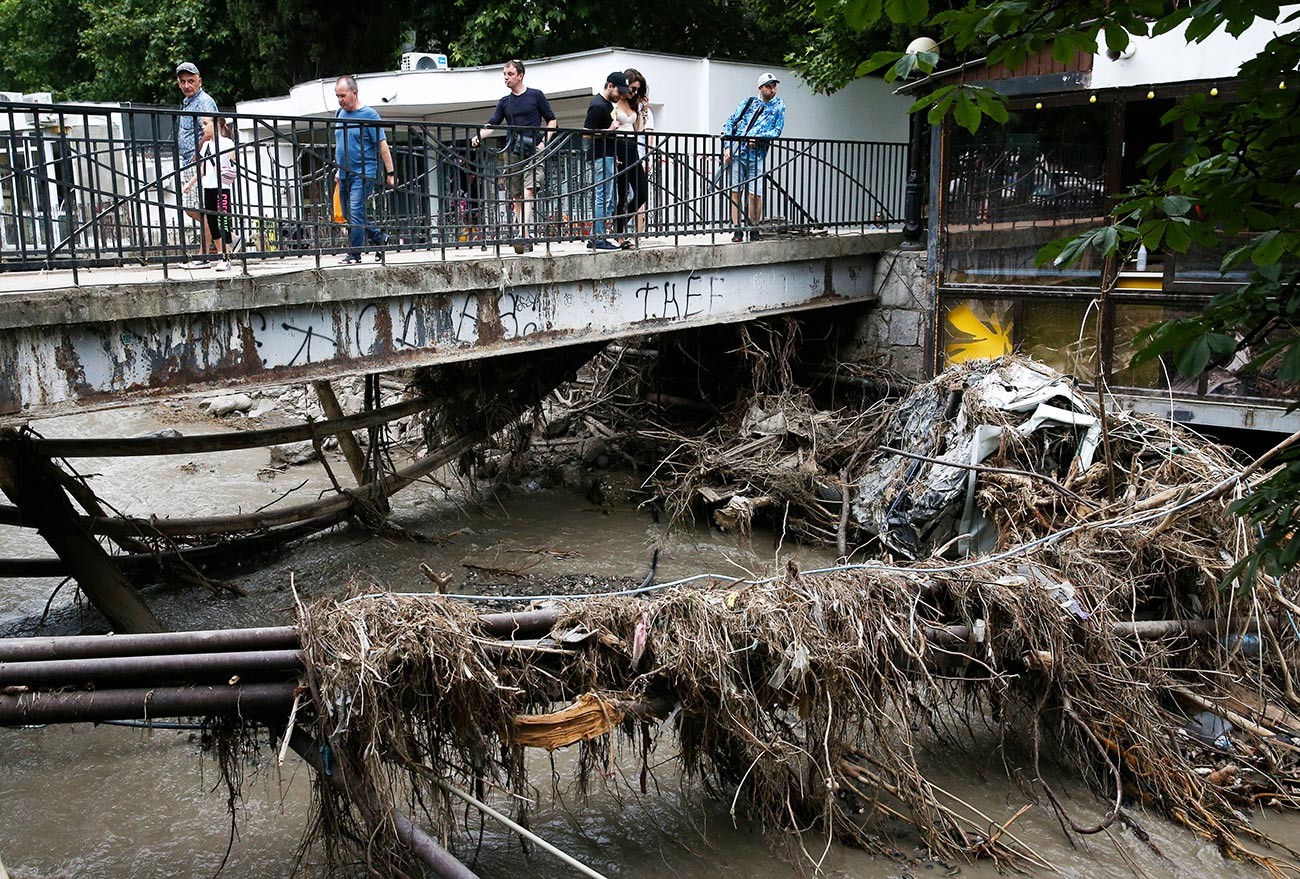
One person has so far lost their life, while 54 people have been injured and one declared missing.
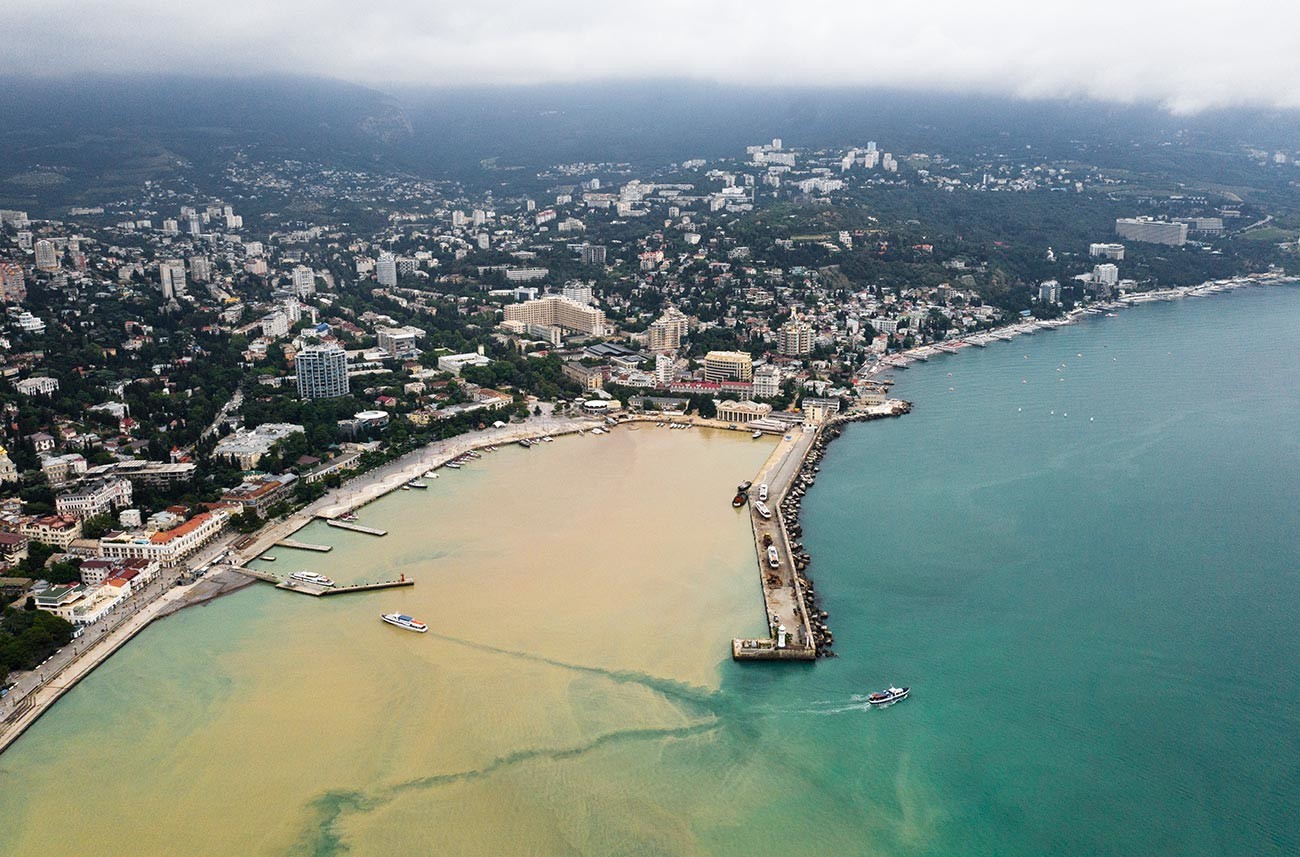
In the aftermath of the floods, Yalta’s beaches resembled dumps, with heaps of trash, composed of whatever the Black Sea threw up, beach chairs and umbrellas and debris from the cafes and restaurants on the embankment. Bulldozers were put to work clearing the rubble and flattening the beaches.
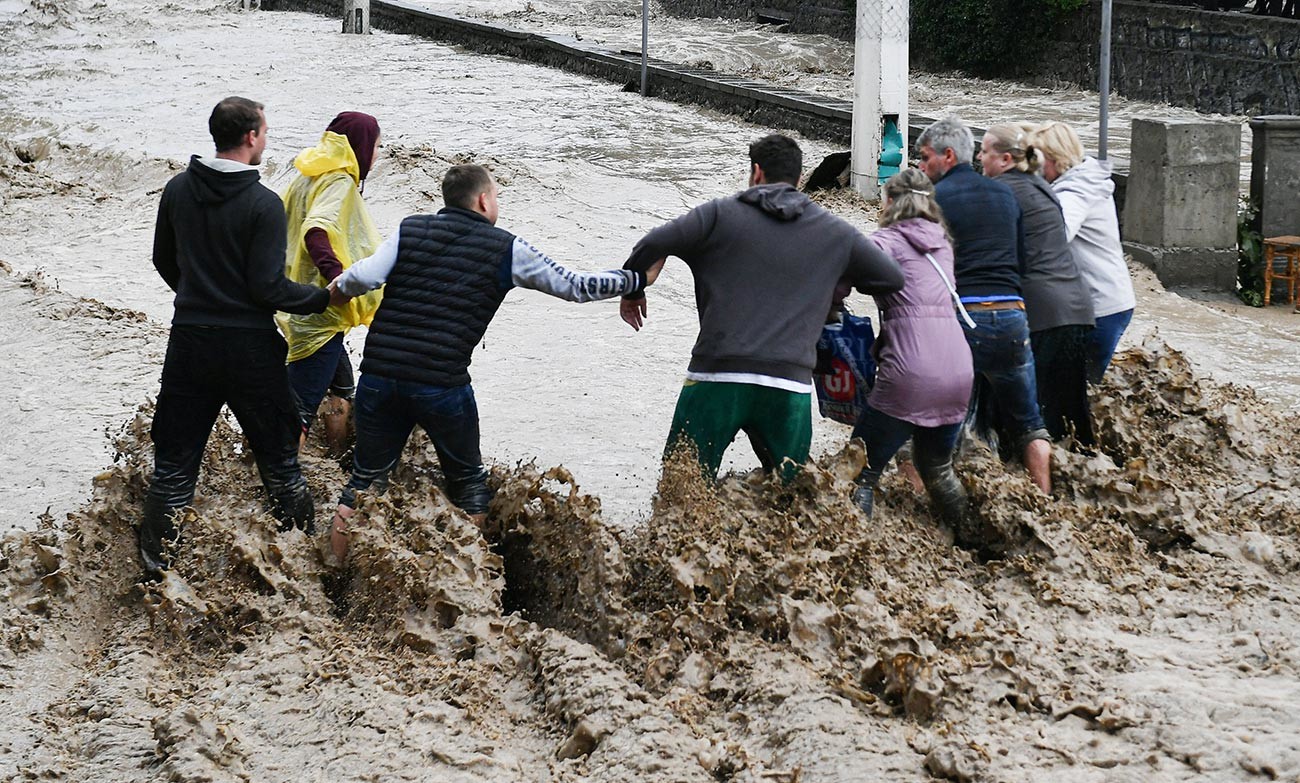
Most beaches have already been reopened and filled up with tourists. Water and power have also been restored.
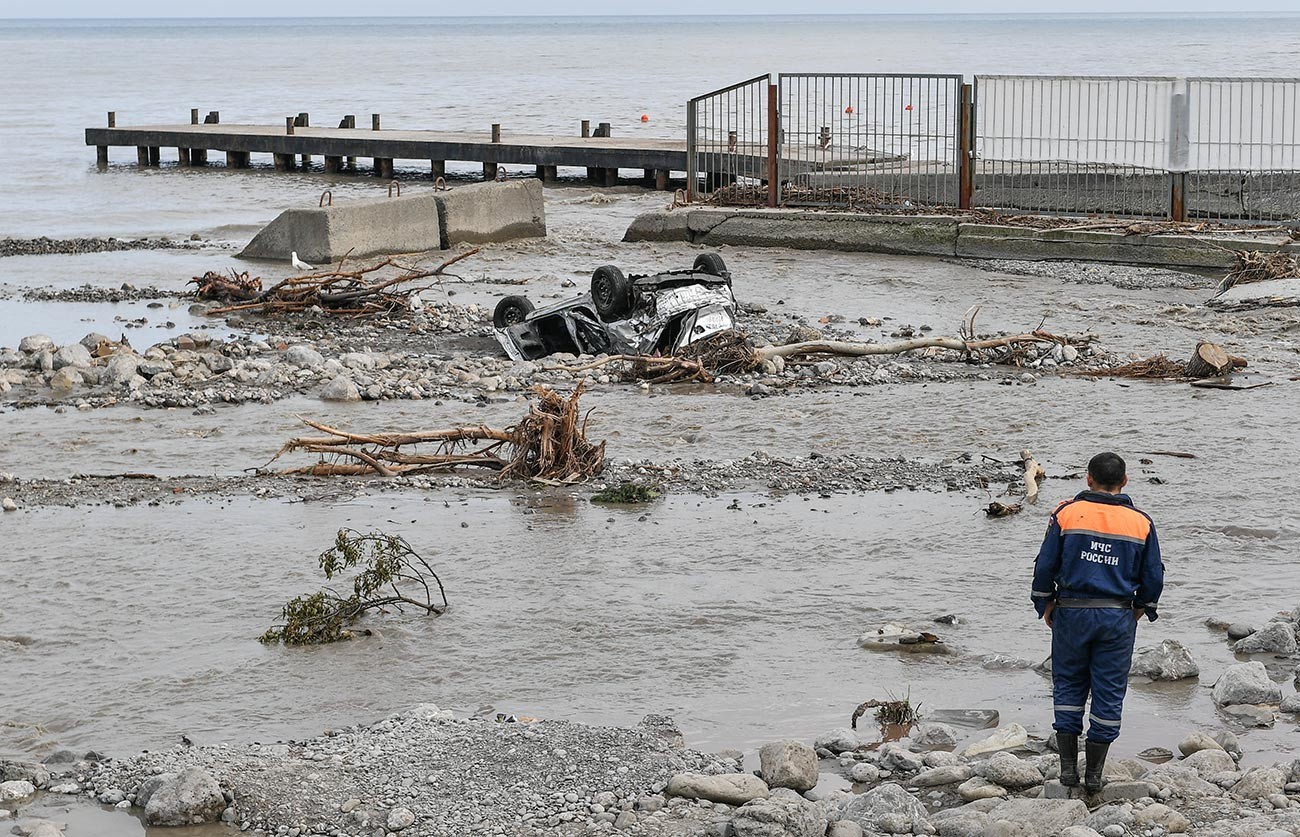
Swimming, however, is still banned, due to the shores being polluted by all the urban waste.
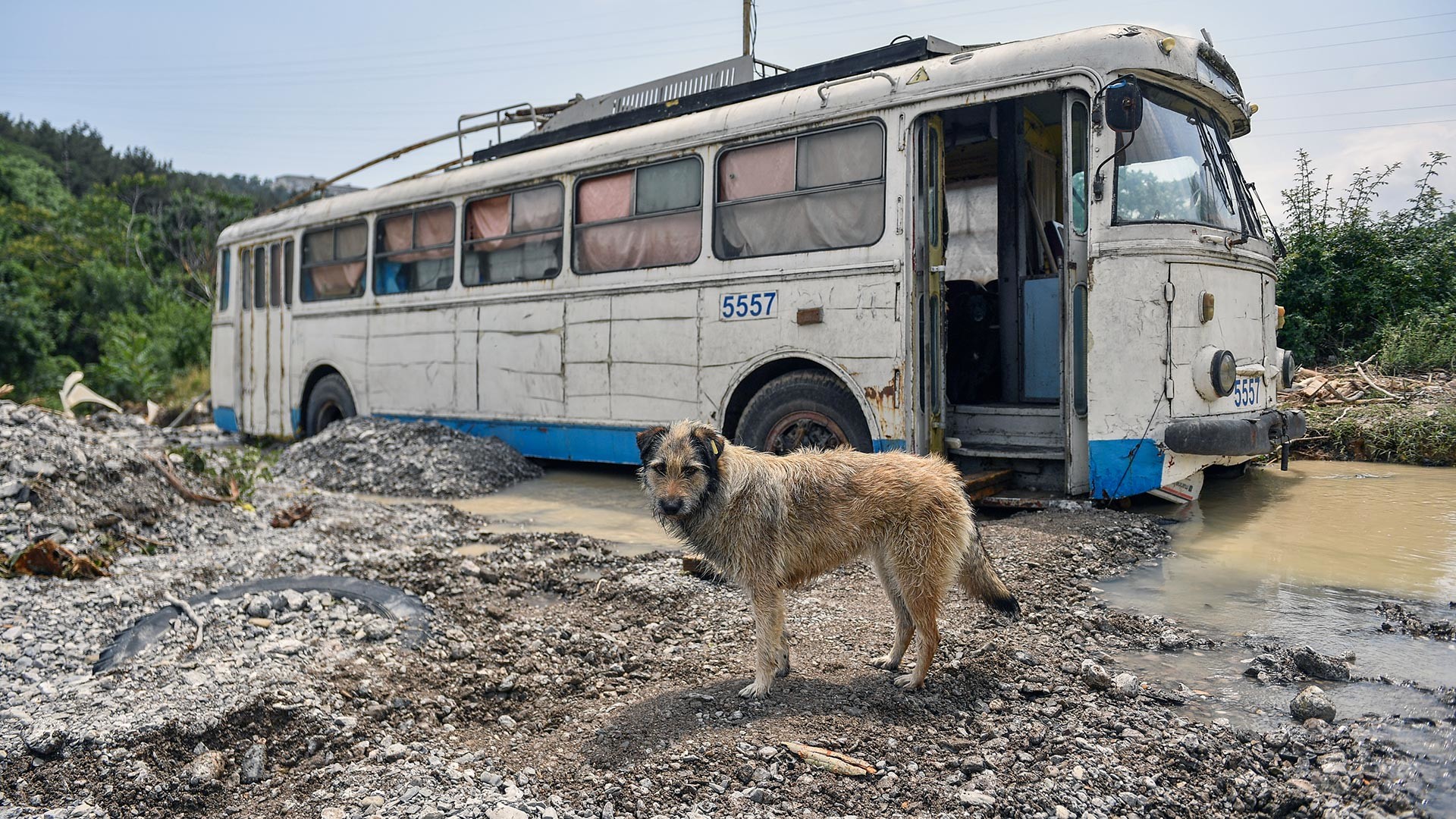
The beaches are being patrolled by police and lifeguards to stop those who decided to defy the ban and go for a swim. Some have been heard saying “I’ve been waiting for this vacation for way too long!”
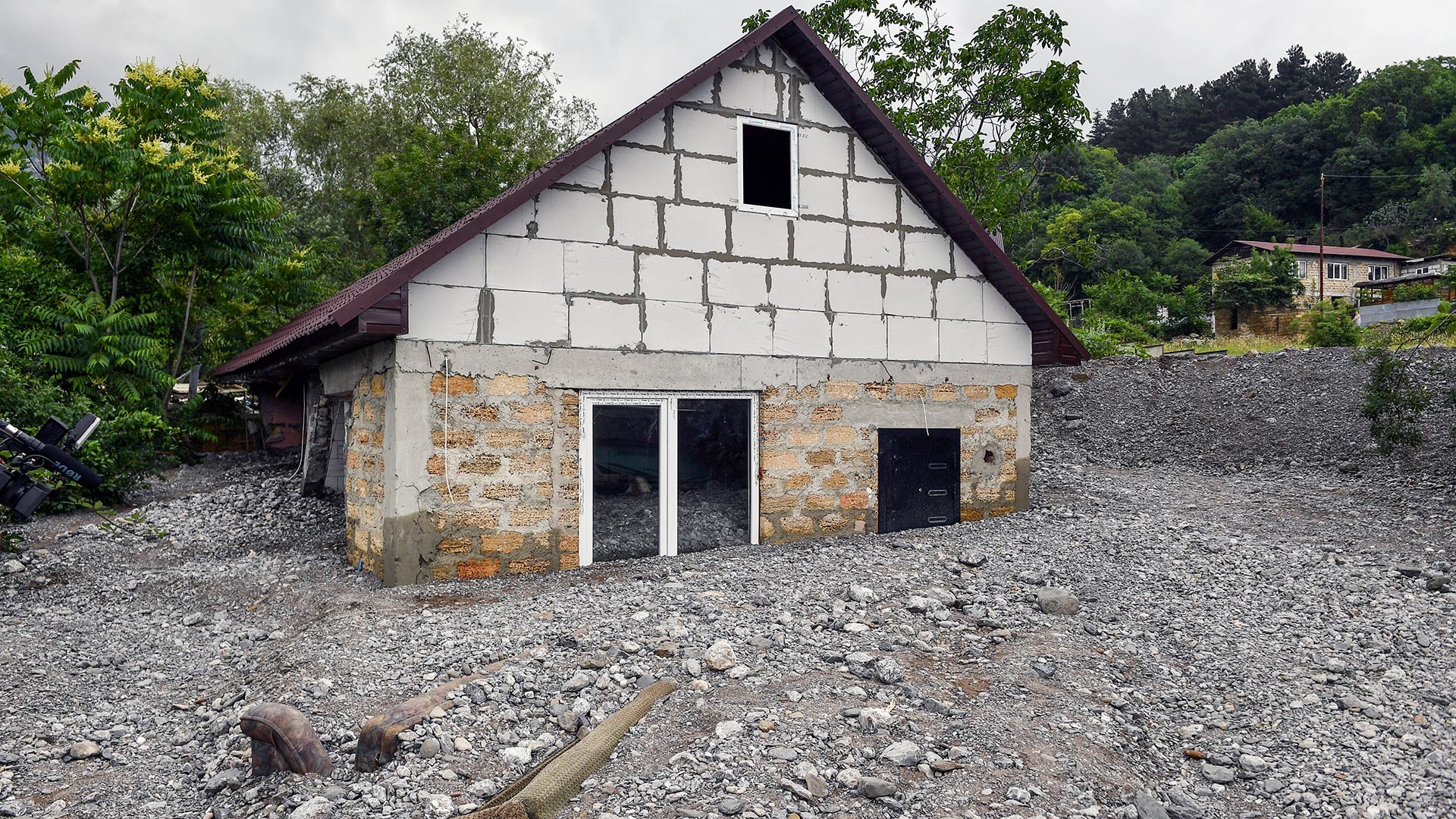
Meanwhile, people with megaphones have been seen strutting about some of the beaches, trying to entice visitors with water scooters and banana rides.
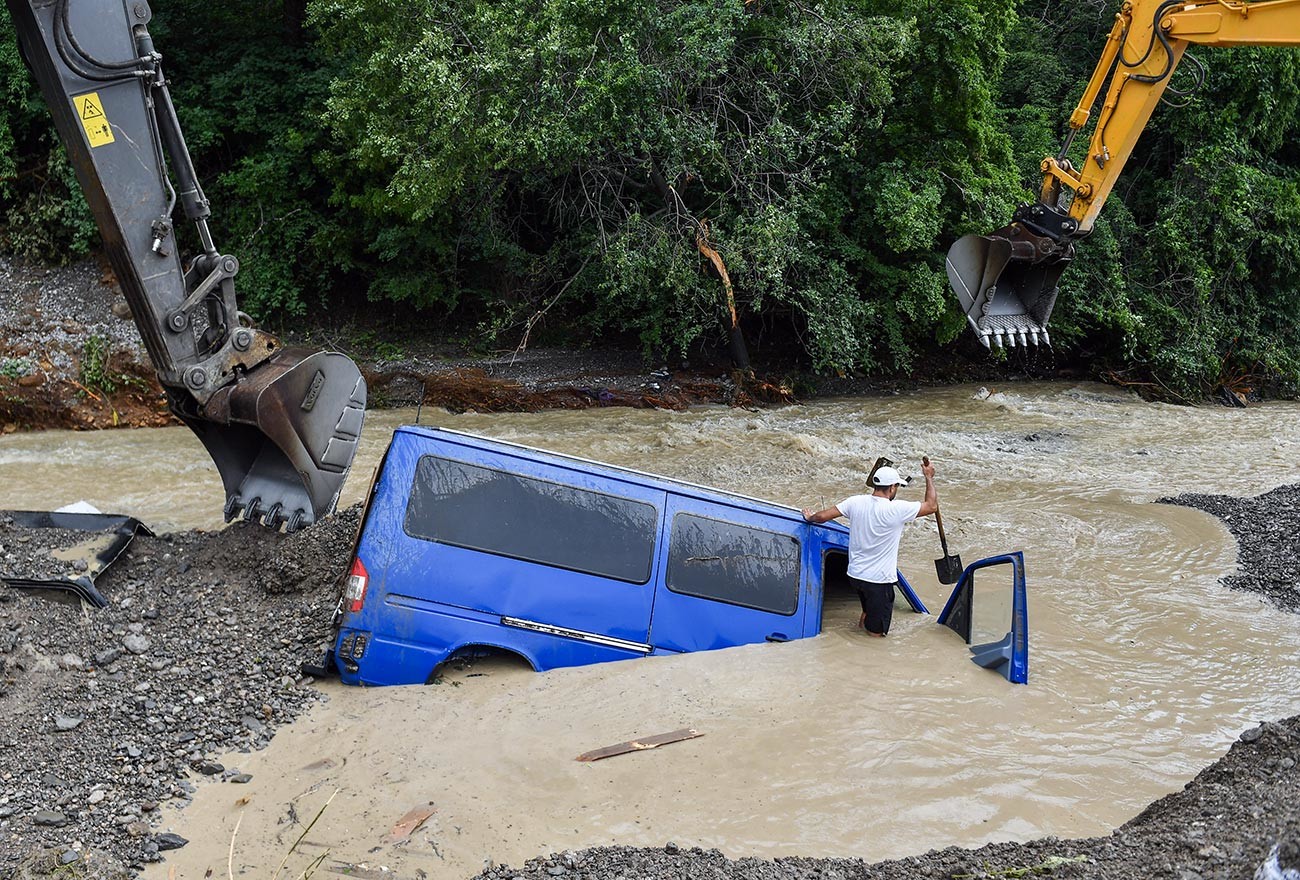
Some 21,000 military personnel were sent to Crimea to aid in clearing the debris. In some areas, the locals are attempting to do everything manually. The government has allocated a sum of 57,8 million rubles (approx. $800,000) to restore the situation back to normal.
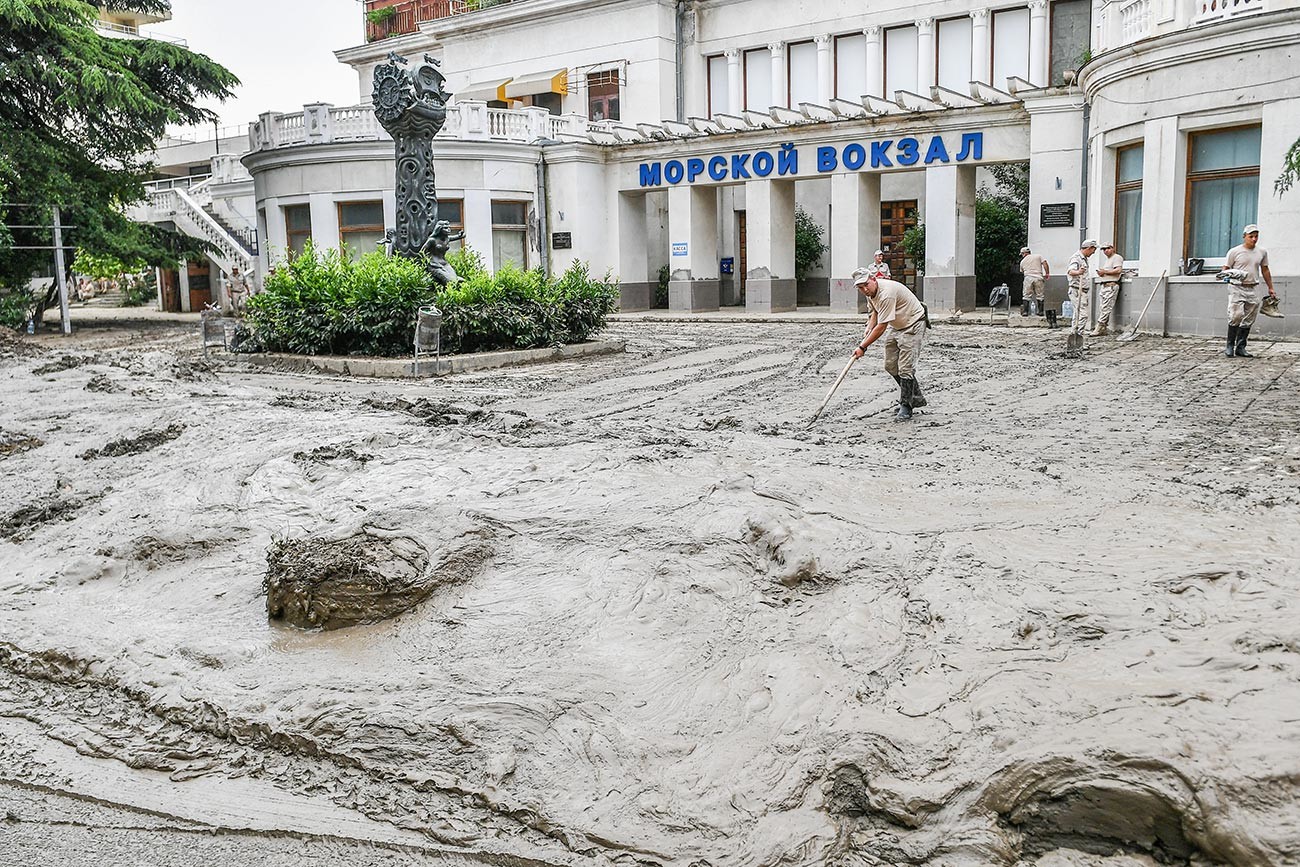
If using any of Russia Beyond's content, partly or in full, always provide an active hyperlink to the original material.
Subscribe
to our newsletter!
Get the week's best stories straight to your inbox